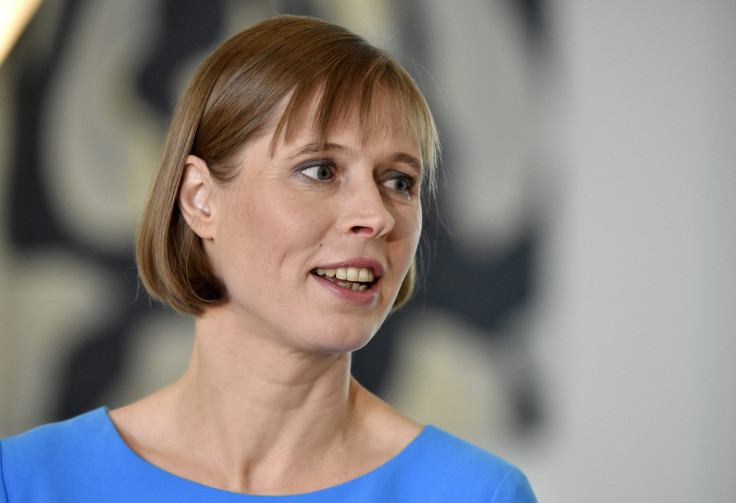Estonia May Become First Country To Launch Initial Coin Offering

The cryptocurrency market is booming and gaining more government traction every day. Estonia is reportedly meeting with Ethereum founder Vitalik Buterin to explore how to make a national cryptocurrency. This isn’t unheard of -- Russia and China are already contemplating cryptocurrencies of their own. But Estonia wants to do something no other government has done before: an initial coin offering.
The small European nation of Estonia already has a reputation for blockchain innovation. Blockchain records are widely used in Estonia’s health care system and e-Residency government ID program, which serves 23,000 people. Even e-residents who don’t live in Estonia can open a business there. This week Kaspar Korjus, director of the e-Residency program, proposed the idea of a tokenized fundraising campaign with an Estonian cryptocurrency called Estcoins.

"An ICO within the e-Residency ecosystem would create a strong incentive alignment between e-residents and this fund, and beyond the economic aspect makes the e-residents feel like more of a community since there are more things they can do together,” Buterin said, according to Korjus’s online announcement. Korjus wrote the funds would help Estonia build out public services for e-residents, including blockchain-powered smart contracts, plus technological infrastructure for Estonia as a whole.
Korjus told Motherboard the virtual tokens could someday be used to pay for government services and taxes. The goal is to connect citizens and e-residents around the world to Estonia’s economy by promoting the idea of a borderless nation. It’s too soon to comment on many of the particulars of this prospective ICO. However, the idea of lawmakers leading cryptocurrency fundraisers is already starting to spread.
New Yorker Patrick Nelson, a candidate for the US House of Representatives, also announced this week his campaign will now accept bitcoin donations. This isn’t his first experiment with bitcoin.
Nelson told International Business Times he accepted bitcoin donations for his town board campaign two years ago. He thinks American lawmakers still have a long way to go before political ICOs are feasible. “I think that’s a step or two away from where we are right now,” Nelson said in a phone interview. “We want to see the technology develop...we would also want some regulatory certainty on that.”
Cryptocurrency fundraising could eventually become a regular part of political campaigns and government initiatives. CoinDesk reported Kentucky Senator Rand Paul accepted bitcoin donations for his presidential campaign back in 2016. It’s only a few steps further to imagine political Ethereum-based tokens. Innovative campaigns are opening the door for all kinds of new possibilities. “We don’t have enough science in our politics,” Nelson said. “I’d like to get to a point first where bitcoin and other cryptocurrencies are treated by the FEC like any other payment network.”
Excited for @sciencemarch518 on Saturday. Good policy requires scientific literacy. #sciencematters #ScienceMarch #marchforscience pic.twitter.com/qZnZfUN9hW
— Patrick Nelson (@PatFNelson) April 20, 2017
Estonian President Kersti Kaljulaid has even argued traditional governments could become obsolete if they don’t get onboard with new technologies like blockchain networks, which are redefining contracts, recordkeeping and economics. The virtual community Bitnation planned its own summer ICO to bolster the idea of sovereign, global governance and virtual citizenship. “Seeing this digital revolution up close has made me question whether the state as we know it today is fit for the 21st century,” Kaljulaid wrote on Facebook.
The global cryptocurrency market is now estimated to be worth $150 billion.
Estonia could soon become the first nation to nationalize a blockchain-powered economy. With the United Arab Emirates, Russia and China turning towards blockchain technology for government services and banking, it appears Estonia may be the first country -- but not the last -- to launch a cryptocurrency.
© Copyright IBTimes 2025. All rights reserved.




















